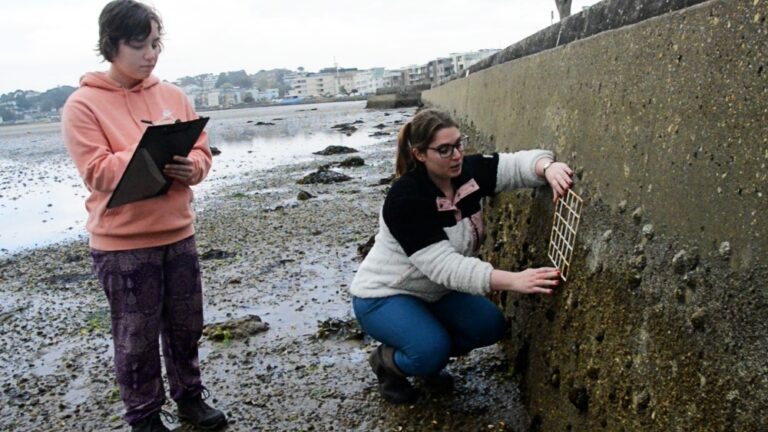A team of UK scientists have come up with an effective way of helping marine life to thrive in urban ports and harbours and improve threatened coastal ecosystems.
A series of low-carbon concrete rockpools bolted onto harbour walls in Poole and the Isle of Wight have provided a safe habitat for an abundance of marine life, according to the team of scientists from Bournemouth University that has been conducting the experimental study.
The bathroom-sink-shaped rockpools were made by Isle of Wight-based eco-engineering company Artecology, which hand-finished them to create rough surfaces and used moulds lined with giant bubblewrap to create naturalistic crevices.
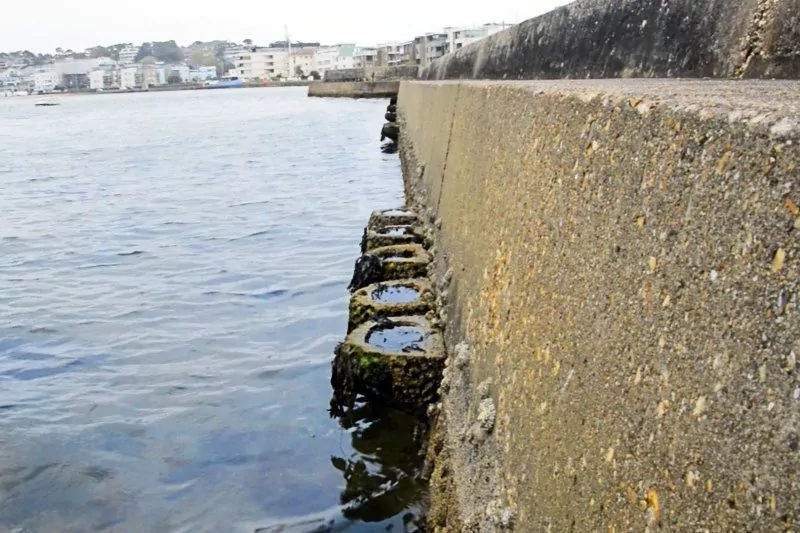
The Bournemouth team installed 114 of these rockpools across three sites in 2020 – 45 at Sandbanks in Poole, 45 in Bouldnor, Isle of Wight and 24 in Hamble Harbour, Southampton – and have been monitoring the species that inhabit them ever since, comparing the results to those living on the seawalls.
By retaining water at low tide, rockpools provide vital shelter, food and a nursery habitat for marine life, with mobile species such as fish and prawns able to remain safely immersed when the tide goes out.
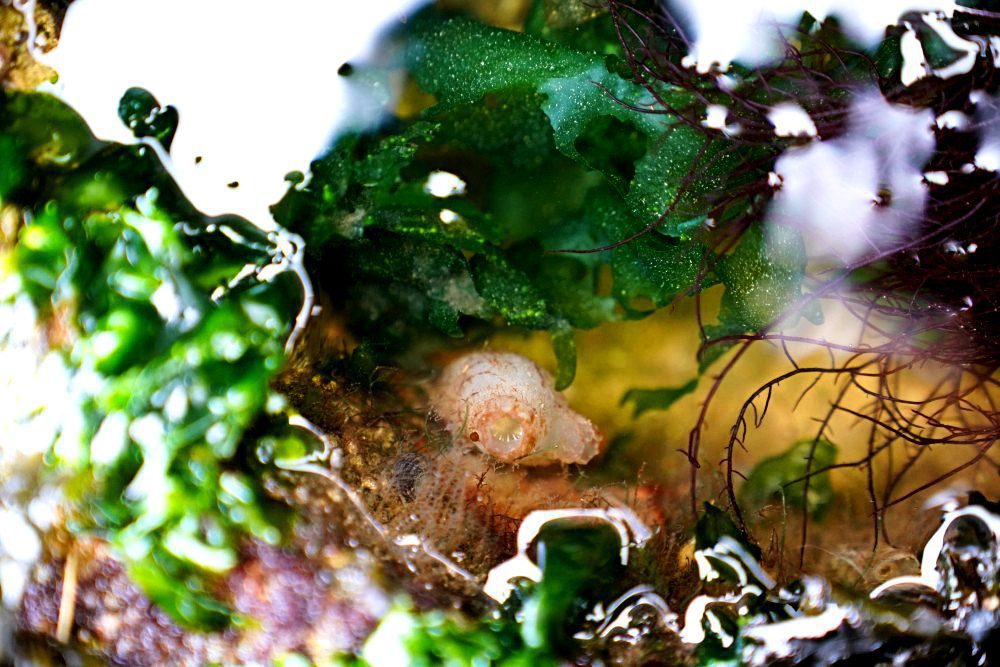
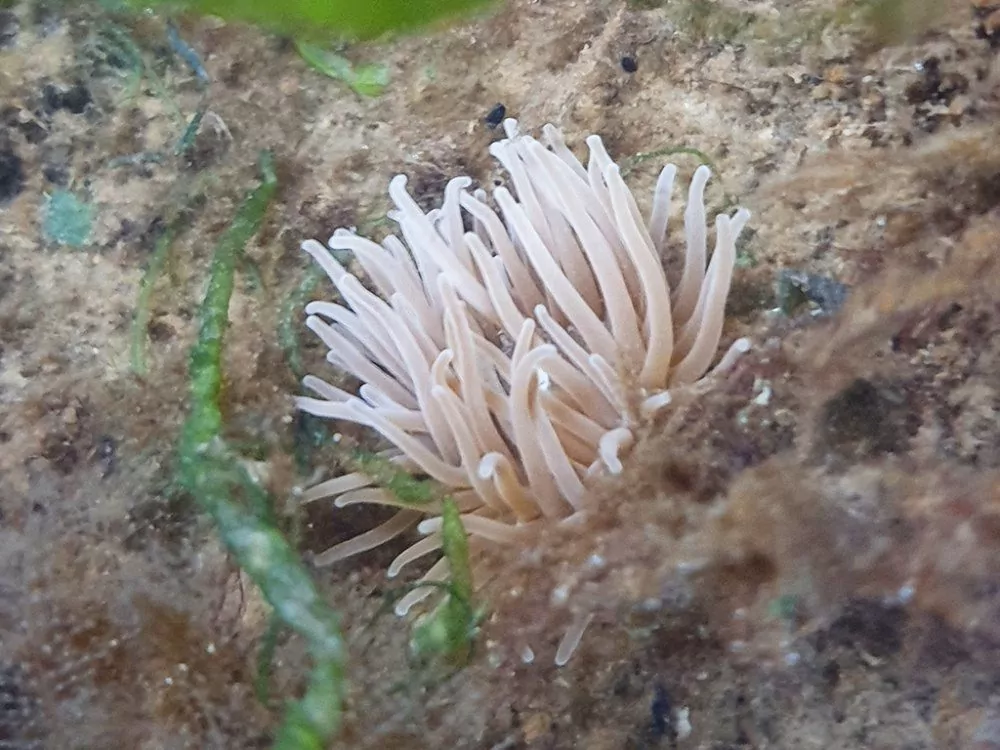
“As our coastlines become more developed, marine species are seeing their natural habitats replaced by sea defences, which are harder to colonise,” said PhD researcher Jessica Bone. “Sea-level rise is also compounding the problem and is squeezing their habitats into smaller and smaller spaces.
“We wanted to see if giving them more rockpools could offer them a lifeline in the face of these challenges.”
65 species beats 40
At Sandbanks, where only 40 species were found inhabiting harbour-wall crevices, the team identified 65 species using the artificial rockpools. These included the protected native oyster Ostrea edulis, crabs, barnacles, molluscs, small fish, sea squirts and 25 types of seaweed, while bass, which are important to fisheries, were seen investigating the pools at high tide.
“At low tide, we found that the rockpools provided a haven for squishy species like sea squirts and sponges that would dry out on the seawall and not survive,” said Bone. “Similarly, they helped delicate species, like bryozoans and some finer seaweeds, that would get bashed about by waves on the seawall and would not survive either.”
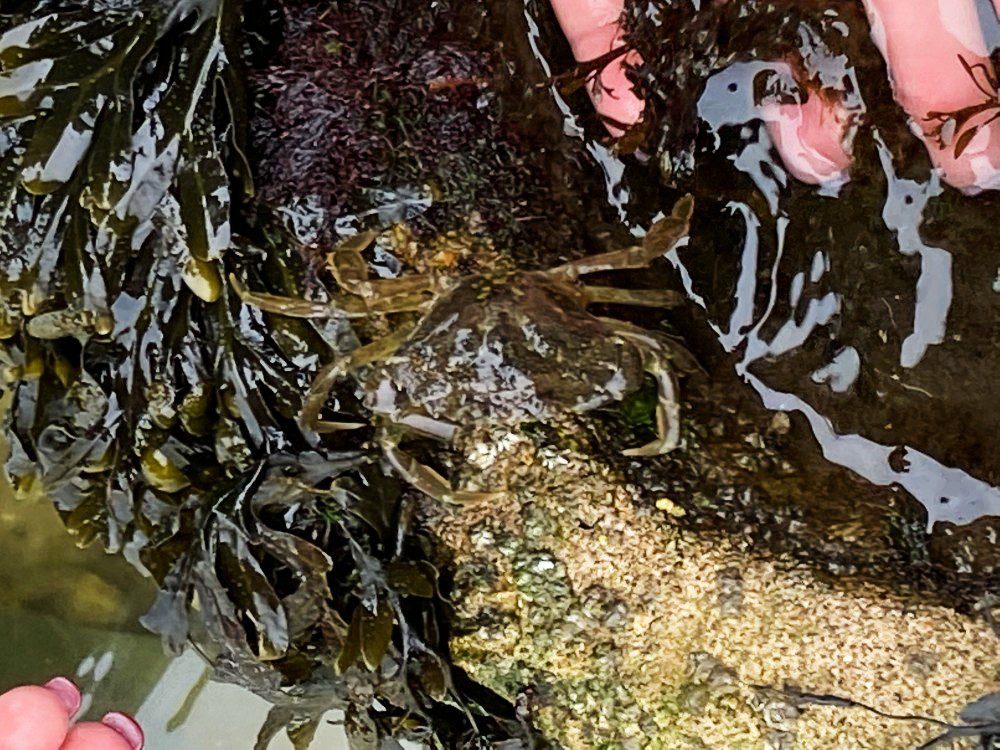
Biomass was also higher in the rockpools, mainly because the artificial habitats encouraged bigger seaweed specimens. “More biomass means more carbon being removed from the atmosphere and excess nutrients being removed from the water – which can be a problem in Poole Harbour, causing low levels of oxygen,” said Bone.
She said that besides helping marine life to survive, the rockpools gave local residents a chance to connect and learn more about it. The project is part of the 4.6 million euro Marineff (MARine INfrastructure EFFects) project, funded by the EU and involving universities and partners in southern England and northern France.
Also on Divernet: Divers find rudder that sank HMS Invincible, 750-year-old wreck found off Dorset – timbers and all, WW2 wreck-site was 100 miles out, Circle of life
